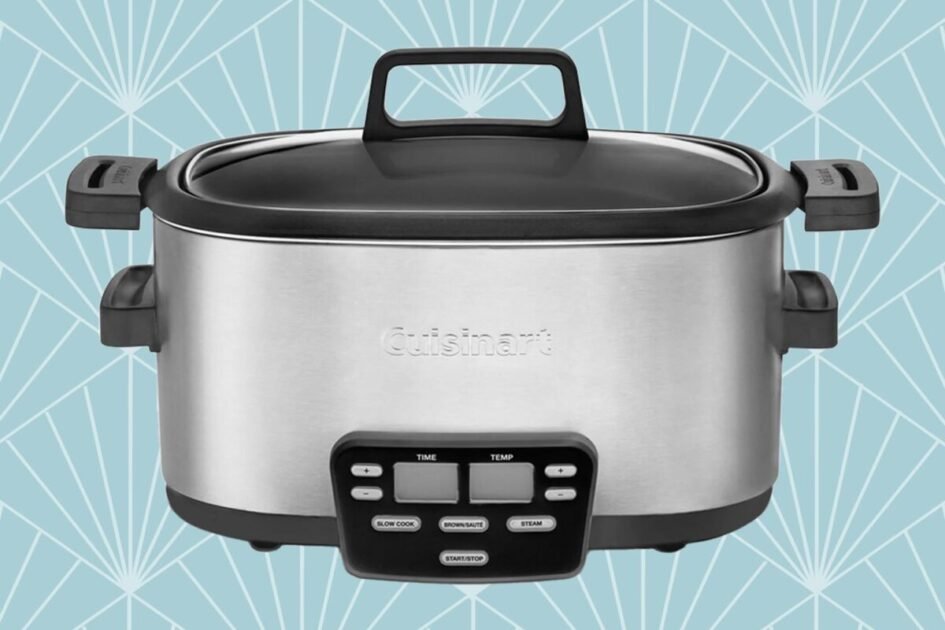Ceramic cookware is safe to use if it is adequately glazed using food-safe materials and the glazing is intact, according to the U.S. Food and Drug Administration (FDA).
Is ceramic cookware safe?
When it comes to choosing cookware for your kitchen, safety is a top priority. Ceramic cookware has gained popularity due to its non-stick properties and attractive designs. But is ceramic cookware safe to use? Let’s explore the topic and find out.
Ceramic Cookware And Fda Approval
Ceramic cookware is safe if it is adequately glazed using materials authorized for food contact use and the glazing is intact. According to the U.S. Food and Drug Administration (FDA), buying ceramic cookware from a reputable company ensures the safety and reliability of the product.
Potential Disadvantages Of Ceramic Cookware
While ceramic cookware is generally safe, it has some potential disadvantages. Here are a few:
- Ceramic coating is not as durable as other materials, and it can crack, chip, and wear off over time, requiring replacement.
- Compared to other non-stick utensils, ceramic cookware tends to be more expensive.
- The particles used in ceramic cookware are made up of tiny mineral particles that can prevent food from being in complete contact with the cooking surface.
Comparison With Other Non-stick Cookware
When choosing cookware, it’s essential to compare ceramic cookware with other non-stick options to determine the best fit for your needs. Here are some popular alternatives:
| Material | Advantages | Disadvantages |
|---|---|---|
| Cast Iron | Durable, retains heat well | Requires seasoning and heavy |
| Stainless Steel | Durable, non-reactive | Poor heat distribution |
| Ceramic | Non-toxic, attractive designs | It is not as stable; it can chip |
| Glass | Non-reactive, easy-to-clean | Can break under high heat |
It’s essential to consider factors such as durability, heat distribution, and ease of maintenance when comparing ceramic cookware with other options.
In conclusion, ceramic cookware is generally safe to use if it is appropriately glazed and the glazing is intact. While it does have some potential disadvantages compared to other non-stick cookware, it remains a popular choice due to its non-toxic nature and attractive designs. Remember to always buy from reputable brands to ensure the safety and quality of your ceramic cookware.
Recommendations And Insights
Ceramic cookware is considered safe if it is correctly glazed with FDA-approved materials and the glazing is intact. Although ceramic coating may not be as durable as other non-stick options, it is healthier and can handle high temperatures without releasing harmful fumes.
Healthiest Cookware Alternatives
While ceramic cookware is generally safe, some individuals may prefer alternative options. Here are a few of the healthiest cookware alternatives:
- Cast iron: Cast iron cookware is known for its durability and ability to distribute heat evenly. It is also chemical-free and can add some iron to your food.
- Stainless steel: Stainless steel cookware is non-reactive and won’t leach harmful substances into your food. It is also known for its durability and resistance to rust and corrosion.
- Glass: Glass cookware is another non-reactive option that is free from chemicals. It is ideal for slow cooking and baking, as it retains heat well.
- Enamel-coated cast iron: This type of cookware combines the advantages of cast iron with a non-reactive enamel coating. It offers excellent heat retention and easy cleaning.
Advantages Of Cooking With Ceramic Cookware
Ceramic cookware offers several advantages that make it a popular choice among home cooks:
- Non-stick surface: The ceramic coating provides a non-stick surface, which means you can cook with less oil or butter. This makes it an excellent choice for those looking to reduce their fat intake.
- Even heat distribution: Ceramic cookware distributes heat evenly, ensuring that your food cooks consistently.
- Easy to clean: The non-stick surface of ceramic cookware makes it easy to clean. Most models are dishwasher-safe, but it’s always a good idea to check the manufacturer’s instructions.
- Chemical-free: Ceramic cookware is generally free from harmful chemicals like PFOA and PTFE, found in some non-stick coatings.
- Aesthetically pleasing: Ceramic cookware often comes in vibrant colours and stylish designs, adding a touch of beauty to your kitchen.
Considerations When Choosing Ceramic Cookware
When selecting ceramic cookware, there are a few factors to keep in mind to ensure you make the best choice:
- Quality of the glaze: Ensure the ceramic cookware is properly glazed using materials approved for food contact. Check for any signs of cracks or chips in the glaze before purchasing.
- Manufacturer’s reputation: Research the manufacturer’s reputation to ensure they adhere to safety standards and have a track record of producing high-quality products.
- Heat resistance: Choose ceramic cookware that can withstand high temperatures to avoid any risk of cracking or warping.
- Cleaning instructions: Follow the manufacturer’s cleaning instructions to prolong the lifespan of your ceramic cookware and maintain its non-stick properties.
- Price: Consider your budget and compare prices to find a ceramic cookware set that offers good value for money.

Frequently Asked Questions For Is Ceramic Cookware Safe? Expert Insights And Recommendations
How Safe Is Ceramic Cookware?
Ceramic cookware is safe when it is bought from a reputable company. It should be glazed appropriately with materials authorized for food contact. The U.S. Food and Drug Administration (FDA) says the glazing should also be intact.
What Are The Disadvantages Of Ceramic Cookware?
Ceramic cookware has a few disadvantages. The coating can crack, chip, and wear off over time. It is also more expensive than other non-stick utensils. The tiny mineral particles in the ceramic coating prevent complete contact with the cooking surface.
What Is The Healthiest Cookware To Use?
Ceramic cookware from reputable companies is safe to use. It poses no harm if it is correctly glazed with food-safe materials and the glazing is intact. Ceramic cookware is a healthier option than other non-stick cookware because it doesn’t use Teflon coating.
These options include cast iron, stainless steel, ceramic, glass, and enamel-coated cast iron. They are non-toxic and safe for cooking.
Is It Better To Cook With Ceramic Cookware?
Ceramic cookware is safe to use if it is adequately glazed and the glazing is intact. Buying from a reputable company that uses materials authorized for food contact is essential. Ceramic cookware is also more efficient than traditional non-stick cookware.
Conclusion
To ensure your safety when using ceramic cookware, it is essential to purchase from reputable companies and ensure the cookware is properly glazed with materials approved for food contact use. The U.S. Food and Drug Administration (FDA) confirms that ceramic cookware is safe when these conditions are met.
While ceramic coating may not be as durable as other options, it is a healthier choice as it does not contain harmful chemicals in traditional non-stick cookware. Overall, with proper care and usage, ceramic cookware is a safe and reliable choice for your kitchen.

Hi, I’m Esrat, and I’m so glad that you found me here at Happy Food Kitchen! I started Happy Food Kitchen in 2023 to have a creative, right-brained outlet to balance my very left-brained career in genetics.






